This book promotion is through RABT Book Tours and PR.
The Well-Tempered Violinist book tour includes a guest post from the author. Share, comment, subscribe.
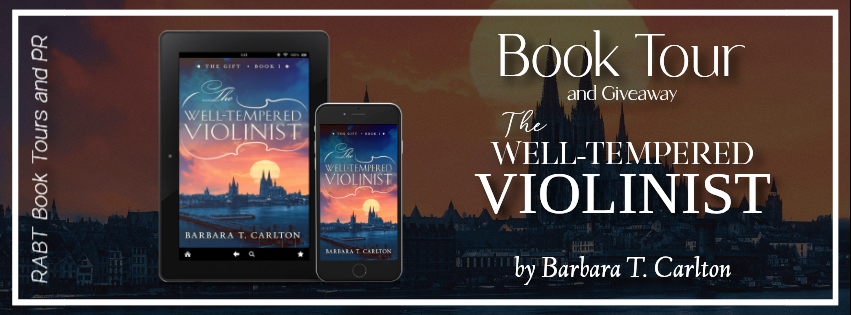
Your message has been sent
Book Details
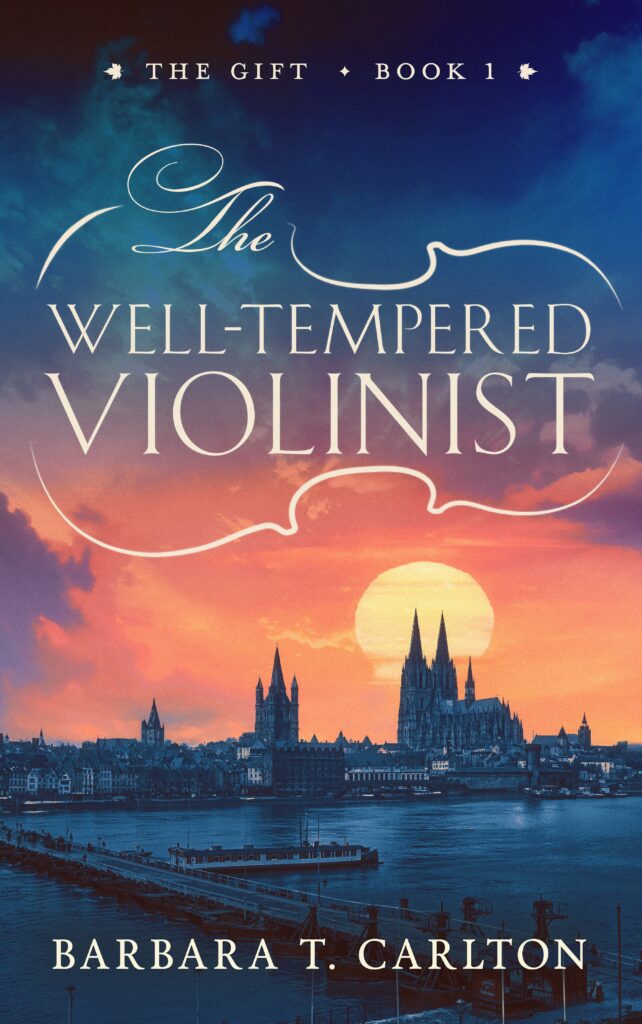
Book 1 of The Gift
Historical Fiction
Date to be Published: November 5, 2025
Publisher: Acorn Publishing
Marthe Adler dreams of making history as a great violinist. But in 1905 Germany, tradition and deep-seated prejudice against women musicians stand in her way. To make matters worse, her beloved father’s sudden death shatters her family’s comfortable life, pushing them to the edge of poverty.
But the violin Marthe’s father left her is a constant reminder of the profound bond between them, and it gives her the strength to begin healing. When the Köln Conservatory offers her an unexpected scholarship, she seizes her chance to reach for excellence.
Under the rigorous tutelage of Professorin Wolff, and subjected to predatory harassment by a fellow student determined to destroy both her self-worth and her chances of success, Marthe quickly learns she will need more than motivation and talent to rise to the top.
Filled with heart, wit, and music, The Well-Tempered Violinist is an enduring coming-of-age tale about an artist striving for greatness against enormous odds.
Author Details
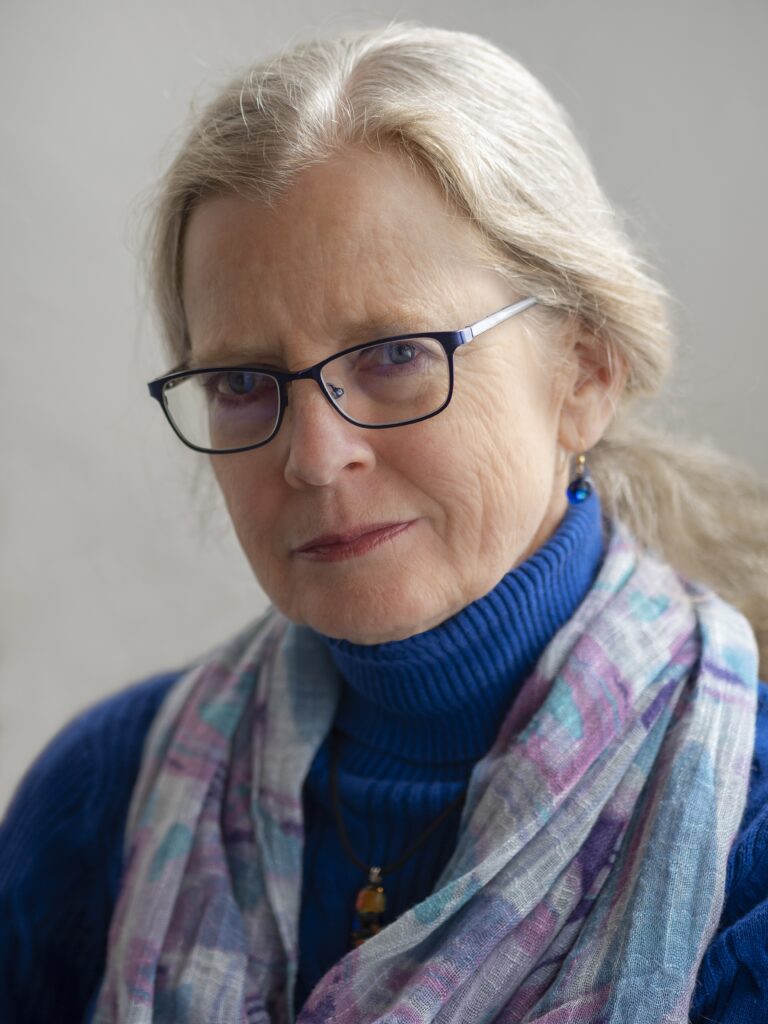
Retired architect Barbara Thornburgh Carlton is an author of fiction, nonfiction, and poetry. Though not a musician, she remains music-adjacent as a volunteer for the San Diego Opera and the Orcas Island Chamber Music Festival in Washington. The mother of two grown children who are remarkably considerate about keeping in touch, she lives in San Diego, California, with her photographer husband, Barry.
The Well-Tempered Violinist, Book 1 of The Gift series, is her first novel.
Guest Post
10 Tips for Becoming a Better Writer — Barbara T. Carlton
- Figure out why you’re doing it. Don’t do it to get rich. The only way to get rich writing is if
your rich uncle dies while you’re doing it and leaves you a fortune. Do it because the process
of shaping ideas into words and sentences and paragraphs and stories fascinates you and
makes you feel whole. - Get basic training. Every art form requires training in the craft of creating it. I always loved
to write but had never studied it until my younger child was finishing high school. I went
through the Creative Writing program at Grossmont College, my local community college,
and never looked back. - Try all the forms: short fiction, poetry, creative non-fiction, playwriting, essay, novel. Each
strengthens and cross-fertilizes the others. Words are the essential tools; you can build any
written art form with them. Learn to use them for anything and everything. - Stick with it. Classes, prompt books, groups, journaling, letters, whatever works for you to
persevere. Every word counts. There’s undeniable truth to the old saying that mastery
requires 10,000 hours. And you can write a lot of words in an hour. - Still, the old wisdom about writing every day is great, but sometimes impossible. Sometimes
you can’t. Sometimes you need time to think. Sometimes life intervenes. Don’t waste time
feeling guilty when that happens. Just get back to it as soon as you can. Because if you want
to be a writer, you really do have to write. A lot. See #4, above. - Get outside the old comfort zone. Push yourself to try new ideas, new forms, be
experimental, even if (maybe especially if) you’re the only one who will ever see the
experiments. Push yourself outside your psychological and emotional comfort zone, too. Go
deep. Go broad. Go where the words and the ideas take you. - Read. Not only your favorite authors or stuff like the stuff you like to write, but other forms,
other genres, other points of view. Read from other cultures (translations are fine). Read
writing that asks hard, unanswerable questions. Read writing that is funny and try to figure
out why it’s funny. When you encounter writing you don’t like, figure out why you don’t like
it. Dig deeper than, “Because it sucks.” - You definitely need to step away from that desk on a regular and frequent basis. You need
physical exercise and fresh air—Blue Sky Time. Time not only to think about specific
problems (“What the hell happens next?”), but to daydream, free-associate, ask, “What if?” - Be curious about the world and everything in it. Always be learning. Inspiration comes from
anywhere and everywhere, but one place it doesn’t come from is just sitting at your desk
staring at a screen. - Live. Life experience rewards the writer who pays attention. I enjoyed writing in my teens
and twenties, but I didn’t have nearly as much to write about, nearly as much perspective, as
I have now, in my 60s. Writing is something you can do all your life, and as long as you do it
with a present, thoughtful, and open mind, you will continue to grow—as a writer and (even
more important) as a human being.
Contact Links
Facebook: Barbara Thornburgh Carlton, Writer – https://www.facebook.com/profile.php?id=61573854931848
Instagram: @btcarlton_writer – https://www.instagram.com/btcarlton_writer/?hl=en
Purchase Links
Amazon: https://amzn.to/4nuLONd
Barnes and Noble: https://www.barnesandnoble.com/w/the-well-tempered-violinist-barbara-t-carlton/1148322333?ean=2940181280434
Giveaway
Two $25 Amazon gift cards

BOOK I, TWTV, EXCERPTS FOR BLOG TOUR
Beginning, from Prologue [637 words]
1.
FEBRUARY 1949, HEIDELBERG
In the very beginning was the sound, bright and rich, with an edge of darkness.
I knew it before birth, my mother said, for whenever my father played, I became still in
her womb, as if I were mesmerized.
In the sitting room of our house in Eberlinstrasse, I became the audience, propped with
pillows before I could sit up, listening to my father and his friends play string quartets on
Saturday nights—for love, he said, not money, for he was a banker, though as a young man he
had studied with the famous Schradieck in Hamburg. Later, he told me I never fussed, never had
to be removed, but remained transfixed, no matter how rough the music nor how often they
repeated it. So perhaps my mother was right.
The second beginning was my fourth birthday, when my baby sister Anni stuck her fist into my
birthday cake when no one was looking and my grandparents gave me a music box that played
“Papageno’s Magic Bells” from The Magic Flute, which I listened to until everyone but me was
sick of it. Best of all, my father gave me my own small violin and began to teach me its
mysteries. First, the names of the strings and their personalities: A, sensible and even-tempered;
D, cheerful and impetuous; down to G, serious and thoughtful; up to E, nervous and
temperamental, with a tendency to squeak. How to tune them, how to find the notes and make
them pure instead of scratchy. He turned exercises and drills into games and improvised harmony
to my children’s songs, something different every time. Alle Meine Entchen, All My Ducklings.
Bruder Jakob, a round. Kleines Mädchen, Little Girl—my favorite, because it was about me.
I practiced every afternoon for my evening lesson. Occasionally, with nerves like
caterpillars in my stomach, I played for the applause and praise of my father’s friends. I might
have thought all children were as docile as myself, if not for Anni. Anni’s temper tantrums, Anni
thundering up and down the stairs, Anni meddling with my toys and often breaking them. I
couldn’t imagine where my parents had found her, or why. Someday, I thought—preferably
soon—she would run off to become a pirate and leave us in peace.
The pirate would surely come to no good. But I dreamed I would become a famous
violinist and lead an exotic and sophisticated life on the concert stages of the world.
When I outgrew my first violin, Anni inherited it and my father began to teach her—at least, he
tried. Anni never practiced and she hated lessons of all kinds. The experiment was short-lived
and a spectacular failure.
I felt horribly smug for weeks.
My father and I shared a secret language, a world full of treasures where Anni couldn’t
stick in her fat little fist and grab anything and where my mother didn’t care to go. A bond grew
between us as between two fibers of the same tree, pure and deep. . .
MARCH 1906, KÖLN
Both of these beginnings came before the real one, like the prologue in fiction.
The third beginning, the real one, is now: a cold March morning a month past my
eighteenth birthday, before the grand front door of one of the grandest houses in Köln. Herr
Dietrich keeps a firm grip on my elbow, probably to keep me from running away. In my other
hand, I carry my violin in its case. This house, on Leopoldstrasse in the heart of the Lindenthal
district, belongs to Herr Ferdinand Kurtz, president of the Bank of Köln. My father’s bank.
Yes. It begins here.
The violin I carry is my father’s, because he is dead.
- Middle, [871 words] from Ch. 15 (Third year):
MARCH 1909
Haydn’s Symphony No. 50 is a pleasure, as any Haydn is. But even in rehearsal I always get a
chill from the ominous opening phrases of Beethoven’s Symphony No. 5, like an announcement
of impending doom out of a clear blue sky. The rest of the Fifth is, in Anni’s phrase, like riding a
tiger. Beethoven tears his themes apart, hurls the fragments back and forth between sections, and
reassembles them, over and over again in his titanic struggle from darkness toward light. It’s
even more exhilarating to play than it is to hear, over half an hour of tumultuous, relentless
drama.
Wagner, on the other hand, even early on, abandoned melodic structure, while Dvořák
filtered the American tunes he heard through his Czech sensibilities and came up with something
neither entirely Czech nor entirely American, but certainly not German.
I wanted to learn about music beyond Germany. I’m getting my wish and working hard
for it. If Orchestra were always like this, I might not be looking forward to our next quartet quite
so much.
Early on I hear whispers from a few other students in our section and notice a few strange
looks. No one challenges the seating chart, however, and it’s not as though I stole the seat out
from under someone else. Besides, as rehearsals progress, everyone behind me can see I know
what I’m doing. I always arrive early, I have the music under my fingers, I ask intelligent
questions, and I’m polite to everyone. After a few weeks, the novelty of my presence at the front
of the section wears off and, much to my relief, other topics of gossip take my place.
I keep my head down and concentrate on getting the phrasing and mood of the Wagner
Polonia Overture.
Saint-Saëns, too, is proving a different sort of challenge. The Wolff knows more than she let on
about French style and essence and she approves of Robert. Still, he inevitably comes in for his
share of the Wolff’s special treatment.
“Herr MacInness, I will blindfold you!” she snaps during our second rehearsal. “You are
too fond of looking at your hands. Keep your eyes on the violinist! Your fingers must know
where they belong without your eyes for help.”
I, on the other hand, endure a large dose of remedial instruction in French essence.
“The bow must always caress the strings, even at volume,” she says. “The French attack
must be as authoritative as the German, but the passion is different. The French are always
singing. They are always in love. It is the chief reason they lost the Franco-Prussian War.”
Robert loses his place as he tries to keep from laughing.
“You didn’t tell me she had a sense of humor,” he says afterward as we head down the
stairs.
“I didn’t know,” I say.
I can’t worry about our slow progress at this point. Orchestra, plus the Wolff’s other
assignments, take first priority. After our orchestra concert in April, that will be the time to
devote myself to Saint-Saëns.
Still, by the middle of term we have the skeleton of the sonata down. The Wolff makes us
take it apart measure by measure and reassemble it, refining, searching for meaning, seeking
deeper nuance. I begin to understand the singing attack. I wonder idly if I’d grasp it more easily
if I’d ever been in love. Since I haven’t, and since that’s unlikely to change before June, I’ll have
to get it through extra practice instead.
One night, I’m working over the slow second movement at home in my bedroom. It has
deep emotional resonance, but mostly I’m wrestling with the trouble spots, repeating them over
and over, then starting from the beginning and trying to play it all the way through. I happen to
glance up at the photograph of my father I kept for myself after he died. In those first awful
months, I held this photograph by the hour, memorizing his features, which mine resemble, his
expression of gentle, amused earnestness, the way he combed his hair, the weave of his necktie.
Since I began at the Conservatory, I haven’t looked at it as much, but now I pick it up and study
it again.
We contemplate each other for a long time, my father and I. It’s not that I don’t think of
him anymore; he’s present for me, always, in his violin, if I’m aware enough to feel him. I sense
him here with me now, through his photograph. I think of the happiness he would have felt in my
progress, the encouragement he would have given me when I needed courage, how, when I’ve
felt overwhelmed, he would have said, Of course, you can do it. Just keep working. It will come.
I think of how much he loved me. How much I loved him. How much I still love him,
though his easy smile and even temper are frozen in this picture, where I can’t reach them. My
eyes sting, not with the raw grief that consumed me in the beginning, but because of the bond we
share now between us, a bond that no one, and no amount of time, can break. [871 words]
I look at the little photograph a while longer, then dust it off with my sleeve and put it
back on the bureau. When I pick up his violin again and take the second movement from the
beginning, I find it no longer matters that I have never been in love.
I have loved. I do love. I will always love.
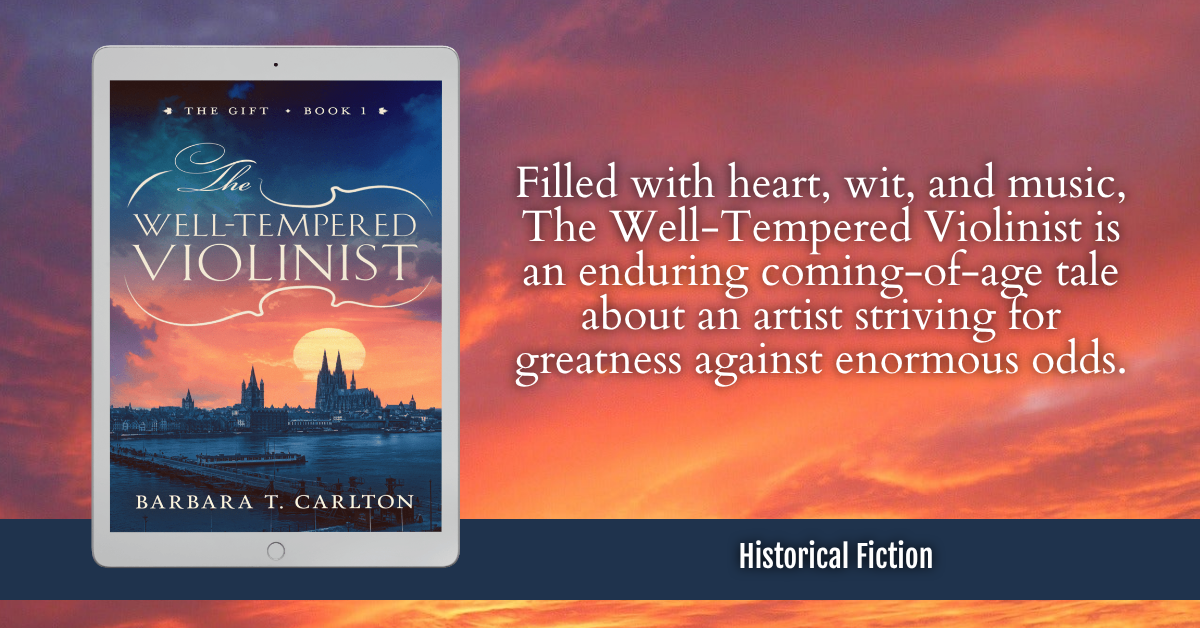
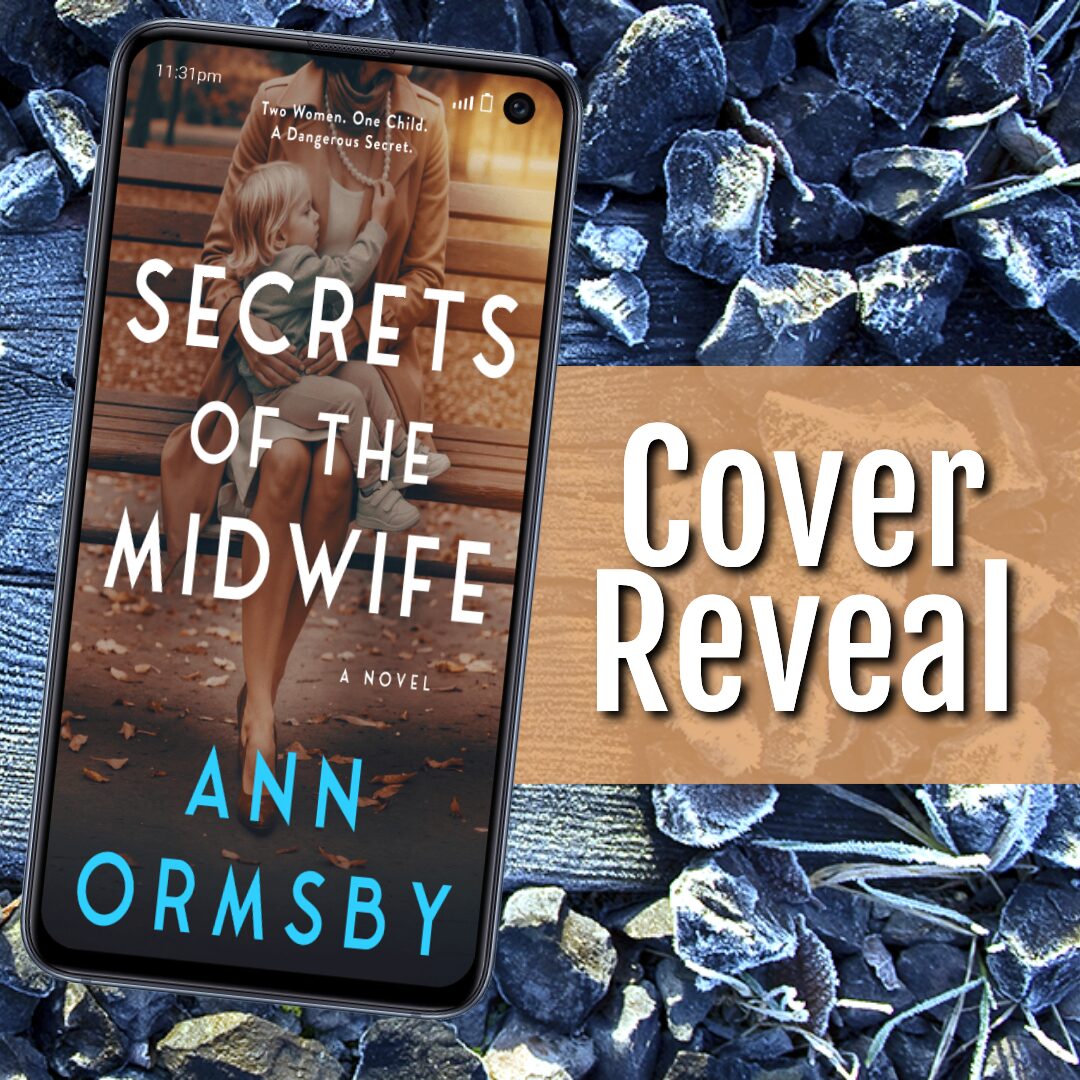

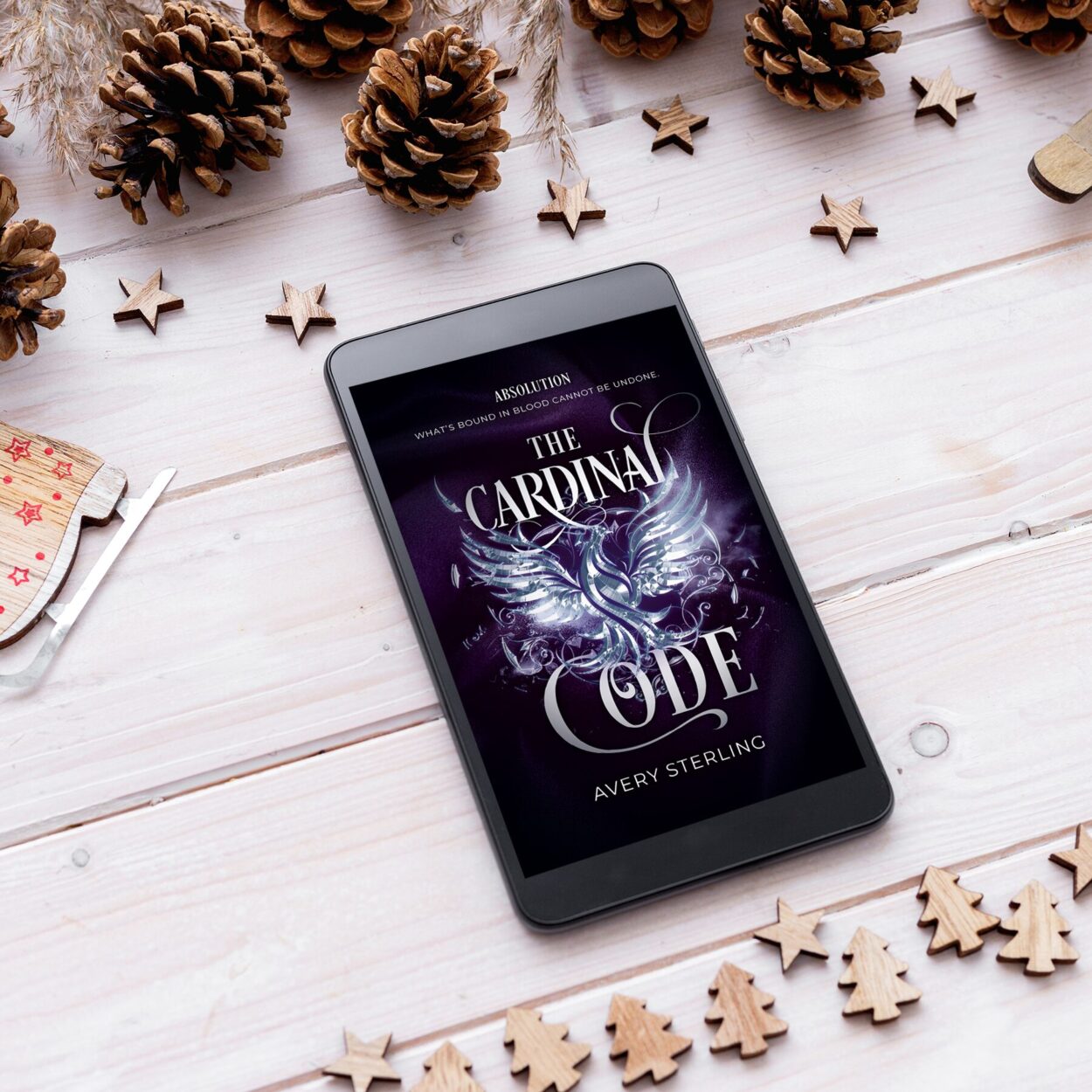

Great excerpt!